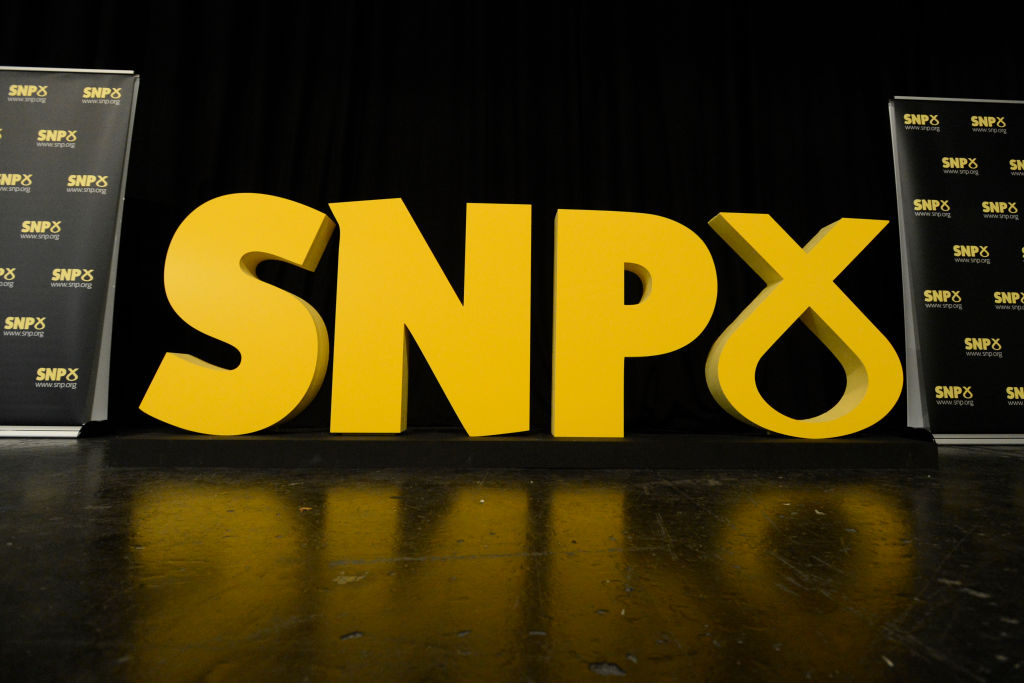John Swinney said this week the SNP doesn’t have a problem with women. I disagree. Of course, some of the unsung founders of the party were women. Some of the party’s strongest and most famous politicians have been women – from Winnie Ewing, Margo MacDonald and Nicola Sturgeon. Yet under the leadership of Nicola Sturgeon, the rights of women in Scotland became conditional on their acceptance of gender identity theory.
While the legislation which sought to enshrine this notion in law was struck down by a Scottish court – which agreed with the Westminster government and feminist campaigners that the bill impinged on the rights of women under the Equality Act – the policy of self-identification has, by stealth, become embedded across Scotland’s public institutions and in Scotland’s governing party. More than that, it has spread to the Scottish Greens, the Scottish Liberal Democrats and (until recently) the Scottish Labour party.
Despite the provisions of the Equality Act and workplace regulations, gender neutral toilets have been introduced across the public sector, including in schools. The same goes for changing facilities – just look to the currently-adjourned Sandy Peggie tribunal. Sexual assaults in hospitals have risen, with mixed sex wards stoking patient concerns about their safety. The Isla Bryson/Adam Graham case showed how women in prison face being banged up with men while their female visitors face being searched by male prison officers who identify as women. Even the care inspectorate thinks it is acceptable to advise that girls in care should have to share rooms with boys who identify as girls.
All this has happened on the watch of an SNP government, at the behest of lobbyist and activist organisations such as Stonewall, the Equality Network, Scottish Trans, LGBT Youth Scotland, Engender and Rape Crisis Scotland who are handsomely funded and lionised by that same government.
On Sturgeon’s watch people, like her, who had no hinterland in feminist or LGB rights activism, assumed the self-styled mantel of ‘progressive’ while dismantling the hard-won rights of women to dignity, privacy and safety and the rights of lesbians to meet and organise in the absence of men. Worse still, those, with such a hinterland, who dared to question what was happening were labelled ‘bigots’ and subjected to considerable abuse and sometimes threats on social media. The leadership looked the other way or egged people on. Who could forget Sturgeon accusing some of her critics of being racists and homophobes as well as transphobes.
Gender identity theory gave licence to some men in the party to flaunt their misogyny and their hatred of women who didn’t toe the party line. They were supported by the rhetoric of Sturgeon but also by the abject failure of the party under her watch to take any disciplinary steps against those who engaged in such abusive behaviour. When a party member was convicted of threatening to rape me there was zero public condemnation from anyone in the party leadership.
Meanwhile complaints about a well-known party activist who had threatened to ‘beat up terfs’ were ignored – and he was frequently pictured alongside Sturgeon until such time as he was himself convicted of sexual violence and imprisoned. No wonder so many women are reluctant to put themselves forward as SNP candidates.
Many female members who dared to stand up against the rampant misogyny have left the party or been kicked out. I met one woman who told me she had been suspended from the party for retweeting my then weekly newspaper column. The only reason I didn’t find myself suspended was because I threatened the party with legal action for harassing me on account of my sexuality and my gender critical beliefs. When enthusiastic adherents of gender identity ideology demanded my suspension from the Westminster SNP group, they were allegedly told that it couldn’t be done because ‘she may be a bitch, but she knows about the law’.
When men in positions of responsibility feel comfortable in indulging in such language about women at official party meetings then, yes, the SNP has a problem with women. Until this is acknowledged and action taken to distance the party from the events of recent years then women like me, who are supporters of Scottish independence, will not feel comfortable in the party – far less representing it.







Comments